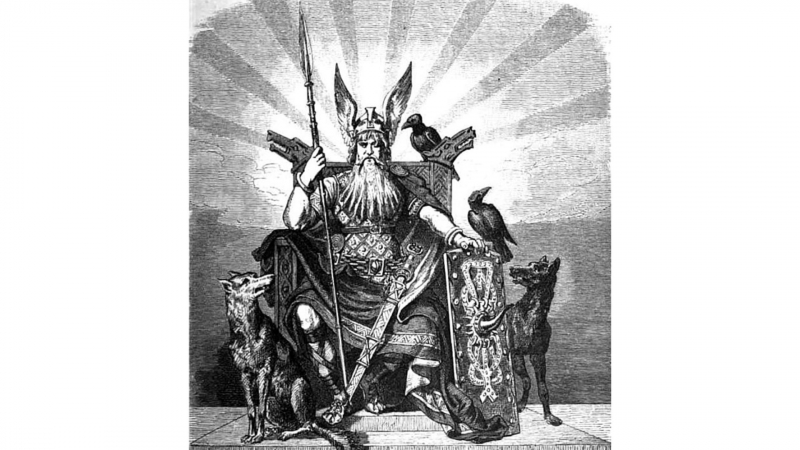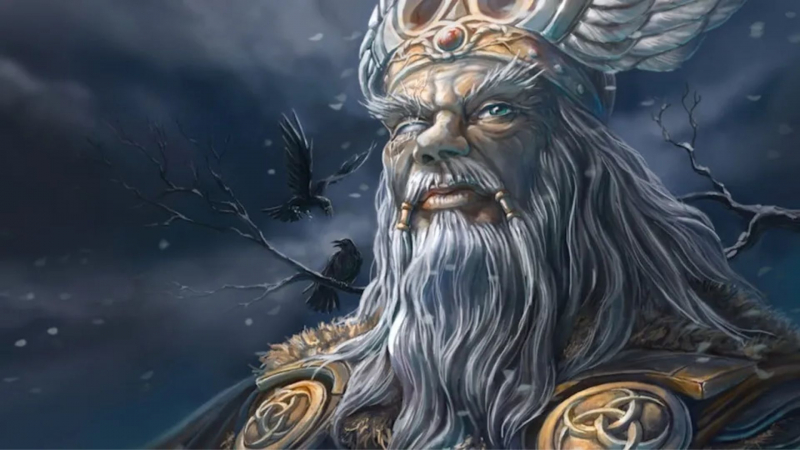Odin

The next god in the list of the most famous Norse gods is Odin. The God of Chief Divinity and War was supposed to be Odin, the father of all gods. In Germanic paganism, the god Odin is highly regarded. The majority of the information that has survived about him comes from Norse mythology, which links him to things like wisdom, healing, death, royalty, the hangman, knowledge, war, combat, victory, sorcery, poetry, frenzy, and the runic alphabet. It also shows him as the deity Frigg's husband. The god was also known as Wuodan, Wuodan in Old Dutch, Wuodan in Old Frisian, Wêda in Old High German, and Wuotan in Old High German. These names all derive from the Proto-Germanic theonym *Wanaz, which means "lord of frenzy" or "leader of the possessed."
From the Roman conquest of parts of Germania (from around 2 BCE), to the migration of peoples during the Migration Period (4th to 6th centuries CE), and the Viking Age, Odin is a significant deity throughout the history of Northern Europe (8th to 11th centuries CE). Germanic Europe's rural folklore acknowledged Odin even in modern times. He is mentioned in place names throughout the areas that the ancient Germanic peoples once called home, and Wednesday is named after him in many Germanic languages, including English.
Despite being initially regarded as the God of War and Death, he developed a deep interest in poetry and knowledge, learned a few songs and runes, and eventually transformed into the God of poetry and knowledge. Of all the Norse Gods, he possessed the widest range of traits. Hlidskjalf, the king of Asgard, saw what was happening in the nine worlds while seated on his throne. He was able to control his targets with the help of his effective weapons, the Gungnir (spear), Draupnir (ring), and Sleipnir (steed), and he was able to keep an eye on everything without missing anything with his one eye that shone like the Sun. In Ragnarok, the final resting place of the gods, the wolf Fenrir killed Odin.











